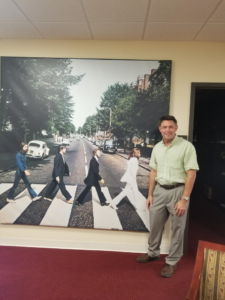I was very struck by this photo of zebras trekking on the open sands, a photo posted on twitter by one Lars-Johan Larsson, now making the rounds online. It seems the black images are the Zebras’ shadows. The actual zebras are hard to see, and at lower resolutions only somewhat visible even if you magnify the picture.
National Geographic Picture of The Year. Black images are shadows of zebras. Zoom in and you will see zebras. pic.twitter.com/6dwnJ0uBSC
— Lars-Johan Larsson (@LarsJohanL) March 21, 2022
But what really makes it apt is that on Twitter Larsson captioned it “National Geographic Picture of The Year”. He may just have meant it as a compliment, as in “should be”, or may have been echoing an appellation that seems almost as old as the picture. Certainly many seem to have taken this appellation literally…and as far as I can tell from looking at the actual 2022 winners, it’s no such thing this year, nor in 2018 when I think it first appeared online. (The photographer appears to be by professional wildlife photographer Bevery Joubert, but I don’t have an Instagram account to check it.)
So we have a photo of incredible concealment, undermined by sunlight, resulting in shadows almost worthy of Plato’s cave–except without distortion!–that is itself likely misidentified either by the original poster or via sharing on social media, and presented as by reposters as new in 2022 although it is actually four years old.
Certainly ought to be the Picture of the Year in some category.

 I did not know this:
I did not know this: